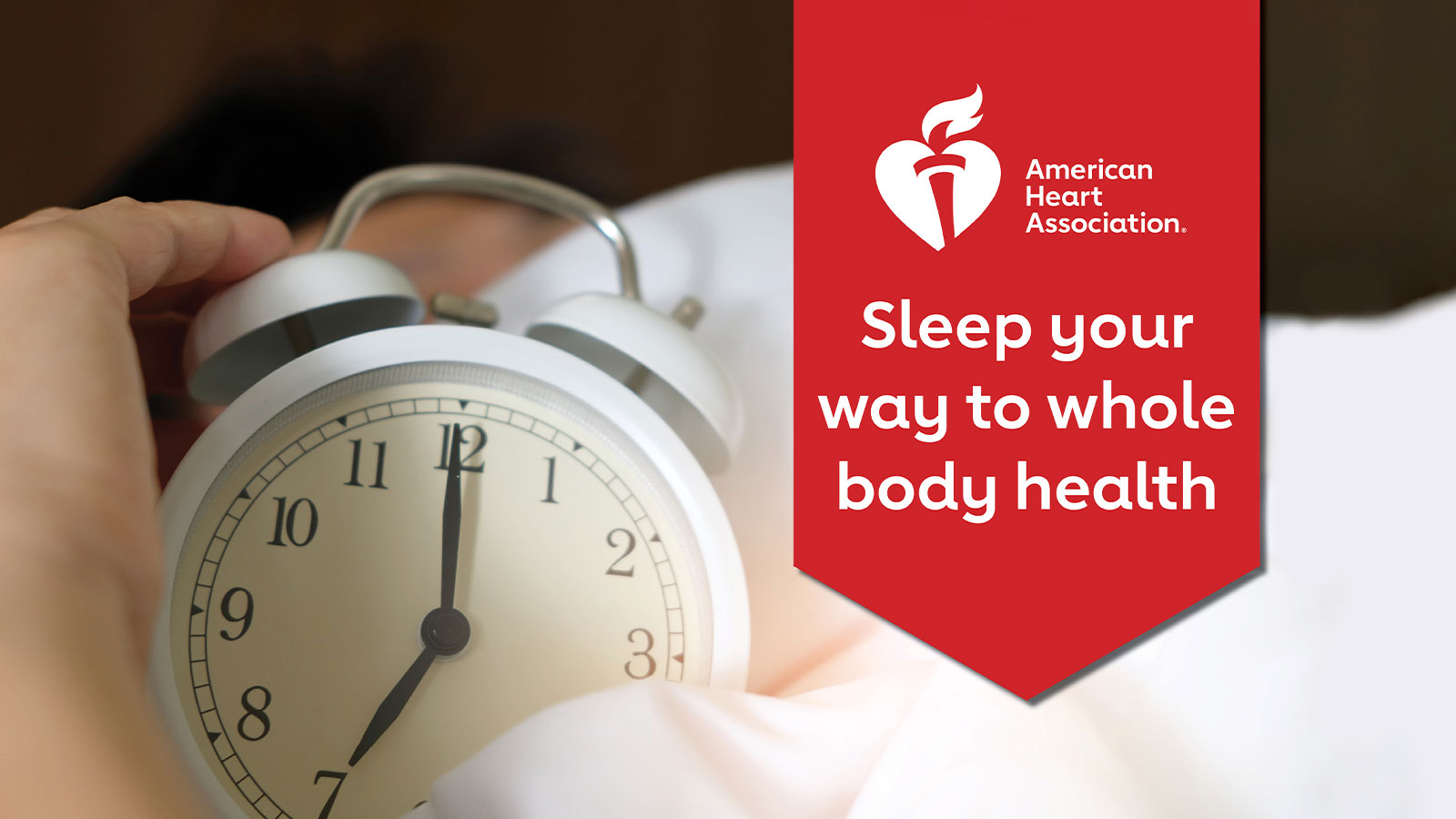Since 1924, the American Heart Association has been fighting heart disease and stroke and helping people to live longer, healthier lives. Our local AHA shares ways that you can stay healthy, get involved and help raise awareness right here in NEPA.
March is Known for College Basketball Madness and Springing Forward, but March is also National Sleep Awareness Month.
Getting a good night’s sleep every night is vital to cardiovascular health. Adults should aim for an average of 7-9 hours, and babies and kids need more depending on their age. Ideal daily sleep ranges for children are 10-16 hours per 24 hours for ages 5 and younger; 9-12 hours for ages 6-12 years; and 8-10 hours for ages 13-18 years.
Cardiovascular diseases are the No. 1 killer globally, yet studies have shown it is largely preventable through healthy lifestyle behaviors, like sleep, good nutrition, and by managing known risk factors, like blood pressure and blood sugar.
There are many benefits of sleep. It can heal and repair cells, tissues, and blood vessels; strengthen the immune system; improve mood and energy; and lead to better brain function including alertness decision-making, focus, learning, memory, reasoning and problem-solving. Sleep also lessens the risk of chronic disease.
Poor sleep may put you at higher risk for:
- Cardiovascular disease
- Cognitive decline and dementia
- Depression
- Inflammation
- High blood pressure, blood sugar (diabetes) and cholesterol
- Obesity
- Stroke and heart attack
Research shows maintaining a consistent sleep pattern may play an important role in preventing cardiovascular disease. And habitual short sleep increases the chance of cardiovascular events. Sleeping an inconsistent number of hours each night and falling asleep at different times may increase the risk of a cardiovascular condition called atherosclerosis, which is the buildup of plaque in the arteries.
Sleep Data
- 1 in 3 adults do not get the recommended 7-9 hours of sleep each night.
- Lack of sleep seems to be a problem for many people. Estimates show as many as 70 million American adults either don’t get good sleep on a regular basis or have a sleeping disorder.
- Not getting enough sleep is associated with social factors like not having a spouse, college education or higher paying job.
- Older adults are more likely to report adequate sleep than younger adults.
- Native Hawaiian/Pacific Islander people and Black people are least likely to get the recommended amount of sleep.
- Kids need more sleep than adults, with the recommended amount based on age, yet about 1 in three (34.9%) average less sleep than experts say they need. Among Black children, 1 in 2 (50.8%) aren’t getting the recommended amount of sleep for their age.
Healthy Sleep Tips
- Eating a balanced diet and getting regular physical activity help improve sleep.
- Managing stress can help you fall asleep faster and supports a healthier night’s sleep.
- Good sleep hygiene is essential and a bedroom free of light and technology will equate to better sleep. Try logging off your electronic devices at least an hour before bedtime.
- Stick to specific times to go to bed and wake up each day and commit to a consistent schedule as much as possible. Try a bedtime alarm to indicate it’s time to start winding down.
- Falling asleep can be tricky for some people. Sleep experts recommend limiting the use of sleep aids. Try adding a relaxing bedtime ritual such as meditation, reading or journaling.
Learn more about healthy sleep, and all of the American Heart Association’s key measures for improving and maintaining cardiovascular health here.


















